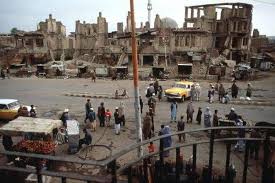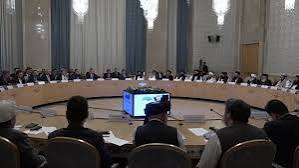Factors of government instability in Afghanistan
The factors of government instability in Afghanistan can include several factors:
-
History of electoral frauds: In the past, elections in Afghanistan have been subject to fraud and foreign and internal interference, which increases insecurity and instability in the government.
-
Ethnic issues and multiple ethnicities: The existence of different ethnic groups in Afghanistan, as well as the influence and interference of ethnic groups in political issues, may cause instability and internal conflicts.
-
Foreign support for different groups: Foreign interference and support for different groups in Afghanistan often weakens the credibility of the central government and creates political instability.
-
Violation of laws and corruption: Widespread corruption in the government, violation of laws and injustice in the distribution of resources, cause people to lose trust in the government and increase instability.
-
Attacks of the Taliban and other groups: The continuous attacks of the Taliban and other armed groups, as well as the failure of the government to deal with them, cause security and political instability in the country.
-
Internal political conflicts: Internal political conflicts, intra-party divisions, existence of different political sects and lack of agreement on the main policies also cause weakness and instability of the government.
-
Poverty and lack of distribution of resources: economic problems, poverty and lack of fair distribution of resources strengthen the increase of insecurity and instability in the country.
These factors can lead to instability in Afghanistan governments in combination or separately.

Why are governments not stable in Afghanistan?
There are many reasons why governments in Afghanistan have not achieved stability. Below are some of these reasons:
-
History of political instability: Afghanistan has a long history of political instability. For decades, this country has faced political movements, ethnic battles, and foreign interference, which has led to instability in governments.
-
Ethnic and cultural conflicts: Afghanistan is a country with cultural diversity and different ethnicities. Conflicts and differences between different ethnic and cultural groups, especially in uncertain political conditions, cause instability in governments.
-
Foreign support for different groups: Foreign interference and support for different groups in Afghanistan has often led to the weakness of the central government and increased political instability. These interactions may be related to the international interests of some countries, which causes internal instability.
-
Corruption and violation of laws: Widespread corruption at different levels of the government, as well as violation of laws and lack of justice, cause people to lose trust in governments and harm their stability.
-
The presence of armed groups and the Taliban: The presence of various armed groups, especially the Taliban, has caused security and political instability in the country. The government’s failure to deal with these groups has caused insecurity and instability of the central government.
-
Economic instability: economic problems and widespread poverty in society, as well as the lack of fair distribution of resources, increase insecurity and instability in governments.
-
Internal political conflicts and the inability of governments: Internal conflicts within governments, inability to implement policies, and lack of agreement on national policies cause instability in governments.
These factors combined with each other have caused the instability of governments in Afghanistan.

Unstable governments have created problems among the people
Unstable governments can cause serious problems for people, including:
-
Insecurity and security threats: Unstable governments usually cause insecurity and continuous security threats. The presence of armed groups, the increase in crime and terrorism, and the inability to provide public protection and security put people at risk.
-
Poverty and unemployment: Unstable governments are generally associated with economic problems and severe unemployment. Corruption, lack of fair distribution of resources, and unsuccessful economic management cause increasing poverty and unemployment in the society.
-
Lack of access to basic services: In unstable governments, access to basic services such as health, drinking water, education, and medical care is generally limited or provided to a low quality. These issues have unfortunate effects, especially for the underprivileged and vulnerable people.
-
Injustice and instability of human rights: In unstable environments, lack of respect for human rights, such as the rights of women and children, citizenship rights, and national and ethnic rights, is common. These cases lead to injustice and social instability.
-
Unscrupulous migration: Due to unfavorable conditions in their own country, people are forced to undergo unscrupulous and dangerous migration, which causes great problems for themselves as well as the host communities.
-
Deviation from development: Unstable governments usually cannot implement development programs effectively and do not provide the necessary investments for infrastructure and economic development.
-
Increasing extremism and terrorism: political and security instability can provide an environment for extremism and terrorism to grow. These issues increase the risks for people and even global communities.
These problems caused by unstable governments cause suffering and helplessness of people and negative developments in society, whose effects are widely felt.
